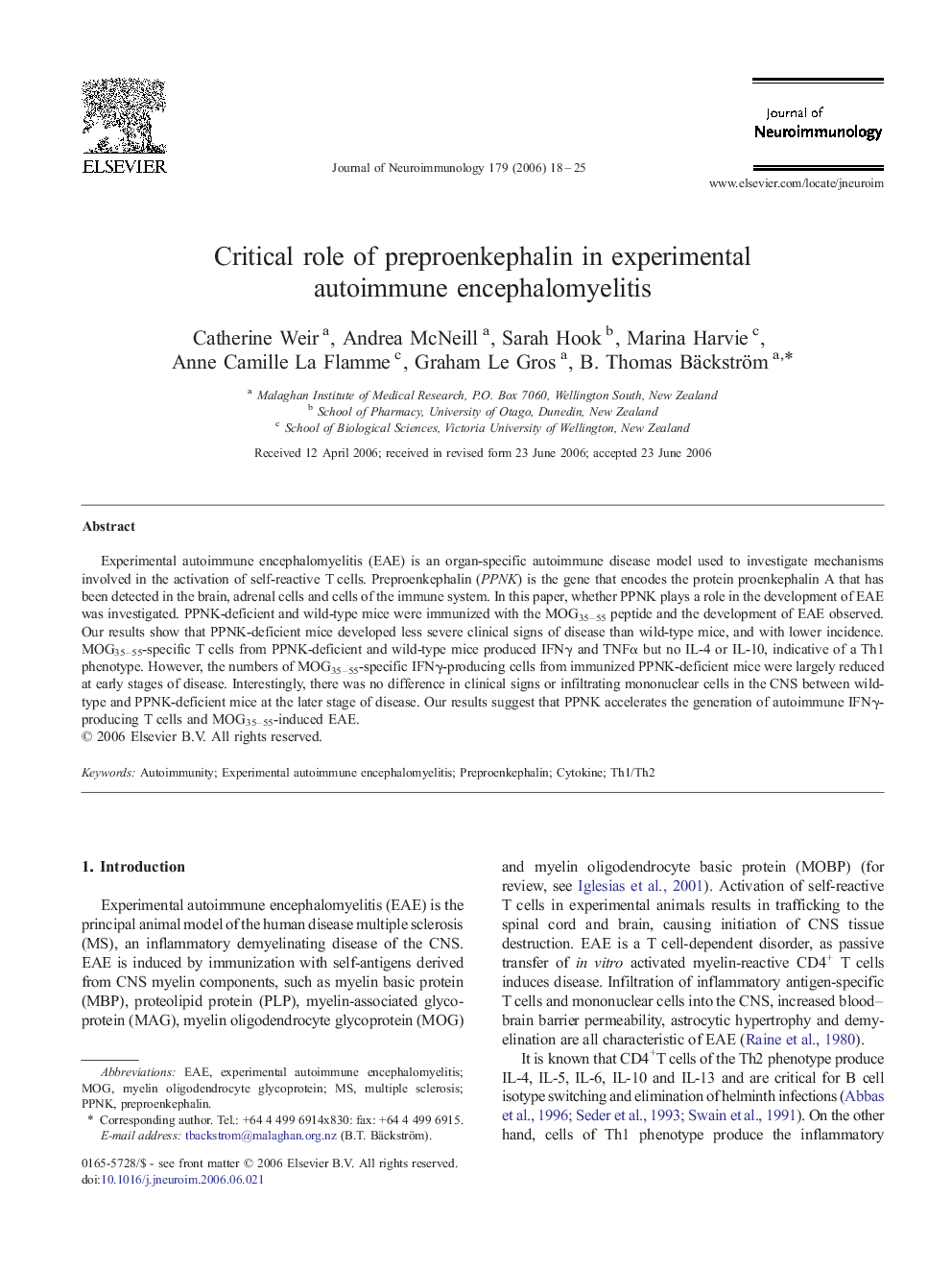| Article ID | Journal | Published Year | Pages | File Type |
|---|---|---|---|---|
| 3065940 | Journal of Neuroimmunology | 2006 | 8 Pages |
Experimental autoimmune encephalomyelitis (EAE) is an organ-specific autoimmune disease model used to investigate mechanisms involved in the activation of self-reactive T cells. Preproenkephalin (PPNK) is the gene that encodes the protein proenkephalin A that has been detected in the brain, adrenal cells and cells of the immune system. In this paper, whether PPNK plays a role in the development of EAE was investigated. PPNK-deficient and wild-type mice were immunized with the MOG35–55 peptide and the development of EAE observed. Our results show that PPNK-deficient mice developed less severe clinical signs of disease than wild-type mice, and with lower incidence. MOG35–55-specific T cells from PPNK-deficient and wild-type mice produced IFNγ and TNFα but no IL-4 or IL-10, indicative of a Th1 phenotype. However, the numbers of MOG35–55-specific IFNγ-producing cells from immunized PPNK-deficient mice were largely reduced at early stages of disease. Interestingly, there was no difference in clinical signs or infiltrating mononuclear cells in the CNS between wild-type and PPNK-deficient mice at the later stage of disease. Our results suggest that PPNK accelerates the generation of autoimmune IFNγ-producing T cells and MOG35–55-induced EAE.
